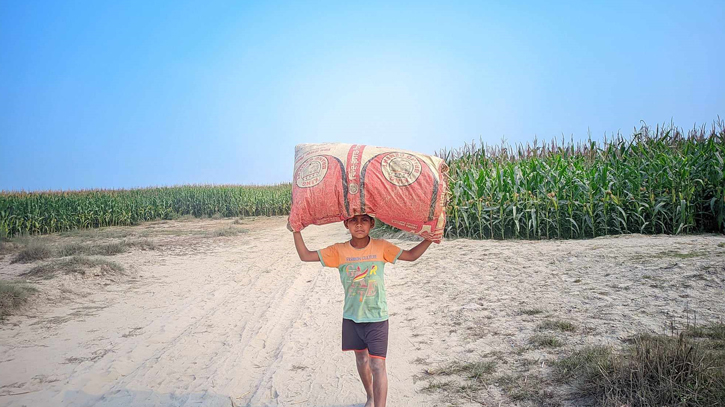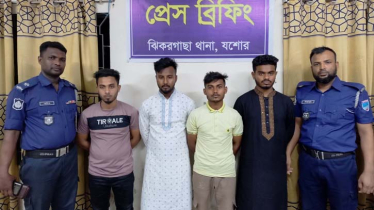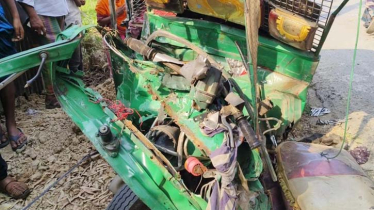
Photo: Messenger
In 28 Union of 4 Upazila of Gaibandha, children from the Char area do not have any healthy environment to grow up in. The lack of schools has led to a stagnation in student’s education. Parents are highly concerned about their children’s future in Char area. Being excluded from the other parts of society and deprived of education they are facing child marriage and many social problems.
Saghata, Phulchari, Sadar, and Sundarganj upazila are surrounded by 28 rivers and about 3 lakh and 70 thousand people live in those Char areas. Due to the absence of primary and non-formal schools, parents are unable to send their children to school even if they want to.
In addition, dropout rates are higher in the Char areas than in the plains. Because of river erosion, floods, poverty, communication problems, and lack of working opportunities children cannot continue their primary education.
A large number of children living in Char areas are suffering from malnutrition and various diseases. In addition, there are not enough community clinics and health centers in Char areas. The people of Char areas have to travel long distances to reach the mainland.
Rashid Molla, from Kalurpara Char said that he could not send his daughters to school as he and his wife have taken shelter here because of river erosion. Facing severe poverty, they have sent two of their daughters to Dhaka for work.
Momena Begum, from the Kockhali Char of Phulchari Upazila, said, "I have a four-year-old son studying in a private NGO school in the neighboring village. I don't know how far I will be able to send him to school. We don't have that much education opportunities here. Most of the children start working with their parents from childhood.
From the same area, Rafikul Islam said, " Fighting with nature, we are living here. Most of the time we stay disconnected from the mainland. The communication system with the city is not very good. If our children fall sick suddenly, we can hardly find a doctor or go to a hospital.”
Abdus Sobhan, a retired teacher from Erendabari Union of Phulchari Upazila said, “Living here is a constant struggle with life. We rely on nature as our economy is totally agriculture-dependent. Many people do not want to live in this Char now. They are sending their children to the city for education.
Abdus Salam Zakir, former chairman of Kamarjani Union of Sadar Upazila said, “80 families had taken shelter in this Char last year due to river erosion. We have near about 150 children in our Char but have no educational institutions.” Akkas Ali Akand, Project Officer of Gana Unnayan Kendra, (a private NGO) said that by stopping children's education, parents living near the river and Char areas send their children to different places to seek work. “To ensure the continuity of education, it is necessary to establish primary schools and non-formal schools”, he added.
Messenger/Faria








